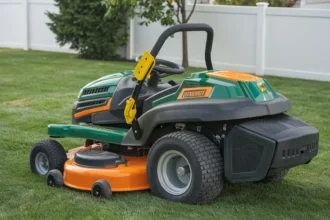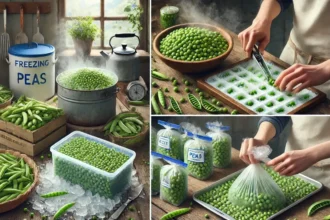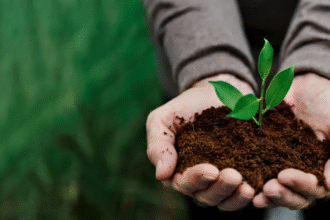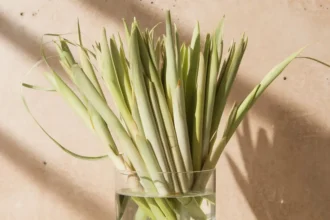Do you love gardening and want to grow a garden in your home?
- What States Is It Illegal To Grow A Garden?
- Oklahoma, Illinois, And Florida: Restrictions on Front Yard Gardens
- Texas: Restrictions in Residential Areas
- Nebraska: Restrictions on Urban Agriculture
- Maine: Zoning and Land Use Regulations
- Las Vegas: Lawn Restrictions In Water-Strained Regions
- Elmhurst, Illinois: Restrictions On Home Greenhouses In Suburban Areas
- Other Garden-related Restrictions
- Reasons Why Growing A Garden Is Illegal In Some States
- Alternatives To Growing A Garden In States Where It Is Illegal
- Frequently Asked Questions (FAQs)
This is a creative, appealing, and beautiful decision. Homegrown fruits and veggies undeniably taste better than those from the stores.
But before you start, it’s important to know that in some states, it’s illegal to grow a garden due to zoning laws, HOA rules, and other restrictions.
From puzzling restrictions on the types of plants you can grow to neighborhood rules on garden design and decorations, these legalities can surprise even the most experienced gardeners.
But knowing the local laws in place will save you from some unexpected issues and constraints.
So, before you start your front yard vegetable garden, you may need to double-check the rules and regulations governing growing gardens in your state.
Also, it’s essential to know how to protect your plants, especially if you’re growing them in climates with strict local laws or harsh weather conditions. This article provides helpful tips on safeguarding your garden from environmental challenges.
In this post, we will share with you which states it is illegal to grow a garden. Read on!
What States Is It Illegal To Grow A Garden?
While growing a garden is legal in most states, there are a few places where it is illegal to grow a garden, especially in front yards or without proper permits.
For example:
- Illinois and Miami Shores, Florida, once had bans on front yard gardens. These laws were recently overturned, thanks to public pressure and legal challenges.
- Some states still impose restrictions on the types of plants you can grow.

Oklahoma, Illinois, And Florida: Restrictions on Front Yard Gardens
In most states, front-yard vegetable gardening is not allowed, and Florida is one of those states. Hence, you may encounter garden restrictions on front yard gardening in Florida.
This law aims to maintain certain neighborhood aesthetics, preventing gardens that don’t align with a specific look. As of 2022, Oklahoma, Illinois, and Florida stood out for protecting this law.
However, a couple — Hermine Ricketts and Tom Carroll — fought to keep their 17-year-old front-yard garden. After that, Florida proposed a bill prohibiting local governments from banning edible gardens on residential properties.
Nevertheless, some municipalities in Florida still have standing laws and orders that restrict or prohibit front-yard veggie gardens.
In Oklahoma, certain municipalities have zoning regulations that prevent growing fruits and veggies in front yards.

Texas: Restrictions in Residential Areas
Some Texas cities restrict growing gardens in residential areas. The restriction on gardening in residential areas is borne out of safety concerns and a way to balance individual property rights with community aesthetics.
Nebraska: Restrictions on Urban Agriculture
Some Nebraska cities have specific zoning laws and regulations in place that can affect urban agriculture and gardening. These codes may restrict the plant types you can grow and where you can grow them, especially in densely populated areas.
Maine: Zoning and Land Use Regulations
In Maine, some municipalities have land use and zoning regulations that may impact gardening. These regulations are meant to address concerns related to:
- Land use
- Public safety
- Property values
Las Vegas: Lawn Restrictions In Water-Strained Regions
In the western U.S. regions, grass lawns are facing increased scrutiny due to ongoing drought conditions. For instance, Las Vegas has enacted a new law mandating homeowners to remove their lawns by 2027.
In California, some cities offer financial incentives to homeowners to replace their lawns with drought-tolerant landscaping. This move aims to conserve water in these regions.

Elmhurst, Illinois: Restrictions On Home Greenhouses In Suburban Areas
Greenhouses are essential structures for protecting your plants from frost, freeze, and other harmful weather conditions. However, there are restrictions on building greenhouses in some suburban areas.
For instance, a couple reportedly faced legal issues in Elmhurst, Illinois for constructing a temporary greenhouse in their backyard to grow their crops.
These restrictions were in place to enforce zoning laws and maintain neighborhood aesthetics. Hence, before building a greenhouse, you need to review your local regulations to avoid potential legal issues, disputes, or fines.
Other Garden-related Restrictions
Restrictions On Outdoor Watering
In a move to prevent unnecessary waste, conserve water, and promote efficient water use, many states and cities in the U.S. have restrictions on outdoor watering, especially in regions prone to droughts.
For instance, some Californian cities restrict lawn watering during the hottest hours of the day to reduce evaporation. In Roseville, specifically, you can only carry out outdoor watering between 10 a.m. and 8 p.m.
To stay compliant, always check your local outdoor watering schedule.
If you’re gardening under watering restrictions, understanding the best type of soil for your plants can help improve water retention and plant health, especially when resources like water are limited.
👉 Related source: Topsoil vs Garden Soil vs Potting Soil: Best Soil for Gardening
Restrictions On The Use Of Herbicides and Pesticides
Most U.S. states restrict the use of herbicides and pesticides, especially near public spaces or water sources, in a bid to protect public health and the environment.
Some states go as far as regulating how and where herbicides and pesticides can be applied. For instance, in Oregon, strict guidelines are in place to prevent herbicide and pesticide runoff into water bodies.
Additionally, certain garden chemicals are banned entirely due to their harmful effects on pollinators.
Conclusion:
Gardening is a popular and creative hobby with lots of benefits. Although growing a garden is legal in most states, you should always check local laws, especially in areas where it is illegal to grow a garden, to avoid unexpected legal issues.
Generally, the laws and regulations regarding gardening can be complex and vary widely from state to state. All homeowners must follow these laws and regulations to ensure compliance and avoid penalties.
If you’re interested in gardening, make sure to check your local laws and regulations to avoid breaking any rules — and paying fines.
🌱 Happy gardening!

Reasons Why Growing A Garden Is Illegal In Some States
Are you surprised that it is illegal to grow a garden in some states? Here are some of the key reasons behind these restrictions:
🌍 Environmental Concerns
One primary reason gardening is illegal or restricted in some states is due to environmental concerns.
For instance, it is unlawful in Florida to grow certain invasive plant species that can damage native ecosystems.
🏥 Health Concerns
Another reason for these restrictions is public health. Some states prohibit the growth of specific plants considered to be health hazards.
For example, it is illegal to grow cannabis and marijuana in some states due to regulatory and safety concerns.
🏘️ Homeowners Association (HOA) Laws
Many Homeowners Associations (HOAs) have laws that forbid residents from growing outdoor gardens.
These rules are typically in place to:
- Maintain uniform neighborhood aesthetics
- Prevent damage to shared property or irrigation systems
🗺️ Zoning Laws
Zoning laws regulate what types of activities are permitted on different land types. This means:
- If you live in a residential zone, your local laws may prohibit gardening in certain areas of your property, especially the front yard.

Alternatives To Growing A Garden In States Where It Is Illegal
If you live in a state where growing a garden is illegal or highly restricted, there are still creative alternatives to satisfy your gardening passion. Here are some great options to consider:
🏡 Indoor Gardening
This is an excellent option for those restricted from outdoor gardening.
With indoor gardening, you can grow your own:
- Fruits
- Vegetables
- Herbs
Using hydroponic systems, grow lights, and shelving units, you can successfully grow a garden indoors year-round.
🌿 Join a Community Garden
Many cities and municipalities offer community gardens where individuals can rent small plots of land to grow their plants. Check with your local government or parks department to see if a community garden is available in your area.
🪴 Container Gardening
Perfect for those with a balcony, deck, or small patio, container gardening allows you to grow a variety of vegetables and herbs in pots, tubs, and containers.
It’s ideal for:
- Apartments
- Townhouses
- Homes with HOA restrictions
💡 Tip: Look for stackable planters or vertical garden systems to maximize space in small areas!
We understand that it may be disappointing not to be able to grow a traditional garden in your yard. However, these alternatives still offer the chance to enjoy fresh, healthy, and homegrown produce — no matter your situation.

Frequently Asked Questions (FAQs)
Do I need permission to grow vegetables?
Normally, you don’t need any special permission to grow food in your garden. However, the state or city you live in may have specific laws that prohibit or regulate gardening.
In some areas, especially those governed by zoning laws or homeowners associations (HOAs), you may be required to get approval or a permit from your local government before planting vegetables.
How many plants can I grow in my garden?
As long as gardening is legal in your area and you’re growing for personal use, there is usually no limit to the number of plants you can grow.
However, you still need to be aware of local regulations. For example:
- You may not be allowed to sell your garden produce without a farmer’s permit.
- It is illegal to grow cannabis or marijuana in many states.






